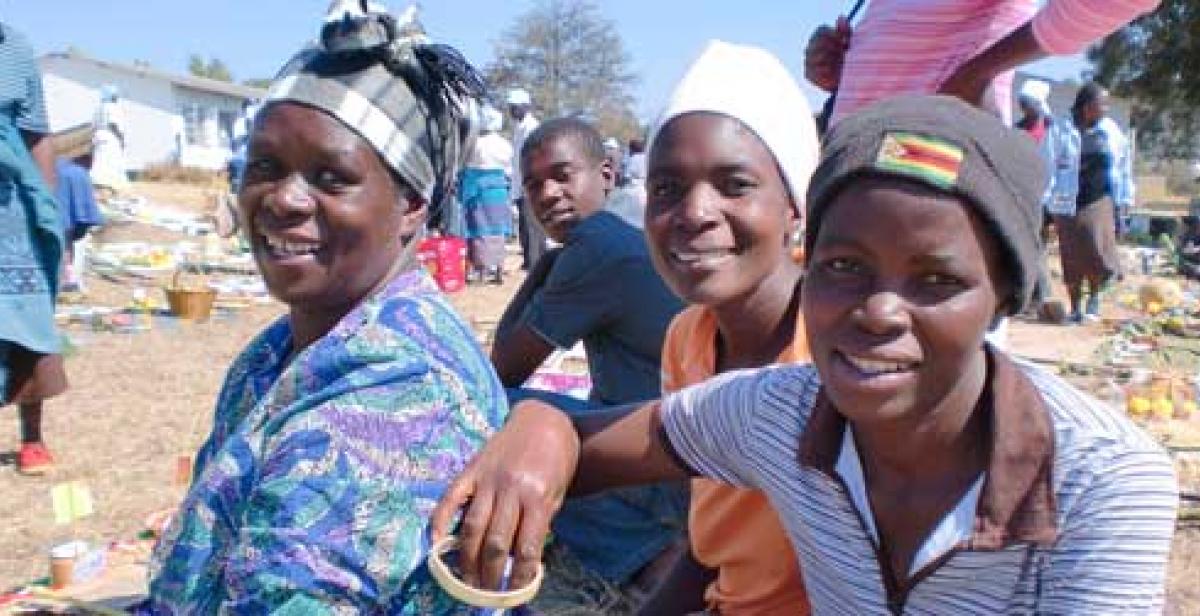Progressio regional managers oversee five or six country programmes from the UK. Even when I travel as far as one of our country offices, I can get so bogged down in spreadsheets and visits around town that I never leave the city.
So I was particularly excited last week when I set off in a 4x4 for the town of Wedza, 200km south east of Harare. Barney Mawire, the director of our partner organisation Environment Africa, was showing me their work. Along for the ride were Lloyd Simwaka and Kevin Ndemera who are in charge of our work in Malawi and Zimbabwe.
Environment Africa works throughout Zimbabwe and the Southern African region to champion, protect and conserve the environment today and tomorrow. Progressio works with Environment Africa in both countries and Lloyd was keen to see how the projects in Zim were progressing so he could report back to our development workers (DWs) in Malawi.
Melody Kwanai, one of our DWs with Environment Africa came along with us, excited at the prospect of showing us the project where she has been based for the past nine months.
Environment Africa have been working closely with people in Wedza to help them diversify their food production and sources of nutrition, and thereby become more food secure.
We were given a tour of the new food processing centre at Chigondo near Wedza where the villagers can now come and process their honey and peanuts to make products which can be sold for more than just the market value of the raw product.
The honey processing machines were new and gleaming in the midday sun – and the looks of achievement on the faces of the community members was striking. Melody showed me a jar of honey with a Chigondo label on it – previously the villages had stored it in any old container and not been able to market it. This was a real sign of progress.
But the big attraction of the day was the seed fair which was happening in a field behind the processing station. 60 or 70 villagers had turned up to display their produce, spreading out tablecloths and setting out bowls filled with brightly coloured beans and seeds, piles of fresh fruit, vegetables and tubers. Bottles of vegetable oil made from the oil seeds and beans they had been growing, soap and candles made their cloths look like well-stocked shops. There were even cages of chickens, guinea-fowls, rabbits and guinea-pigs!

It was a tremendous sight. It was amazing to see such variety in a country whose public image over the past few years has been one of growing food dependency and failed crop production.
Farmer Monica showed me her pumpkins and greens – smiling proudly – and around her many of her friends gave a passing glance at the judges who were circulating the displays and making notes and marking what they saw. There would be a prize for the most impressive display later on.
Talking to some of the farmers displaying soya milk, neem, Jatropha oil and moringa I asked how long they had been having this produce fair. “About three years now,” they said, “since Environment Africa has been working with us. We are very excited at all the new food stuffs we have been introducing. Our village is healthier now as a result of this and now we can sell our produce, we can afford to pay the fees to send our children to School!”
I came away from the visit excited and enthused by the work I had seen and touched by the images of plenty I had seen – such a contrast to the emaciated faces which have become a more common image of Zimbabwe in recent years.
Cathy Scott is Regional Manager for Africa, Middle East and Asia



